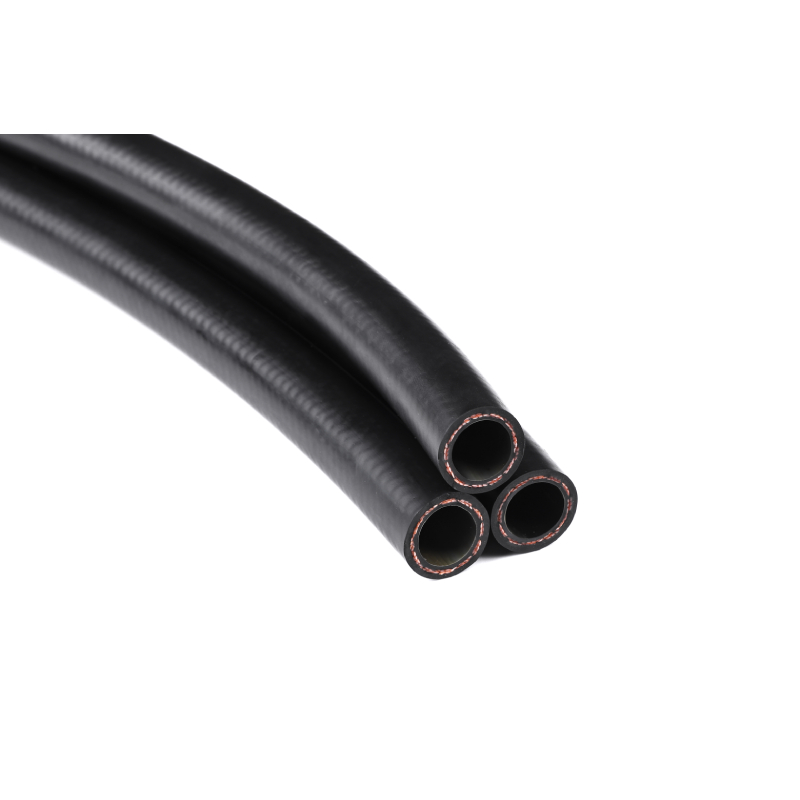fuel delivery hose
Dec . 12, 2024 22:34 Back to list
fuel delivery hose
Understanding Fuel Delivery Hoses Essential Components for Safe and Efficient Fuel Transfer
Fuel delivery hoses play a crucial role in the transportation and transfer of fuel in various applications, from automotive industries to commercial fuel services. These hoses are specifically designed to handle the challenges associated with different types of fuels, ensuring safe and efficient delivery. In this article, we will delve into the significance, construction, types, and maintenance of fuel delivery hoses, highlighting their importance in daily operations.
Significance of Fuel Delivery Hoses
Fuel delivery hoses are indispensable in ensuring a streamlined and safe transfer of fuel. Whether it is gasoline, diesel, or biofuels, these hoses are engineered to handle specific pressures and flow rates while preventing leaks and spills that could lead to costly environmental damage or dangerous fire hazards. Additionally, they facilitate the transfer of fuel from storage tanks to vehicles or machinery, making them vital in both construction sites and fueling stations.
Construction and Material
Fuel delivery hoses are constructed from materials designed to withstand the corrosive nature of various fuels and the conditions under which they operate. Common materials include rubber, PVC, and composite materials that provide flexibility, strength, and durability. The layers in a fuel delivery hose often incorporate reinforcement materials like polyester or steel to improve pressure resistance and prevent kinking.
These hoses are also designed to be resistant to weather and UV exposure, which can cause deterioration over time. Moreover, some hoses are lined with specialized materials to prevent the permeation of fuel vapors, which is essential for maintaining environmental safety and compliance with regulations.
Types of Fuel Delivery Hoses
There are several types of fuel delivery hoses, each tailored for specific applications
1. Standard Fuel Hoses These are used for general fuel transfer applications, suitable for gasoline and diesel. They come in various diameters to accommodate different flow rates.
2. High-Pressure Hoses Designed to handle the pressures found in high-performance engines or commercial fueling systems, these hoses feature reinforced construction to prevent bursting.
fuel delivery hose

3. Chemical-Resistant Hoses For fuels that contain corrosive additives or those used in chemical processes, these hoses are made with specialized materials that resist degradation from harsh chemicals.
4. Flexible Hoses These hoses allow for easier handling and installation in tight spaces. Their flexibility makes them popular in mobile fueling applications.
5. Static Dissipative Hoses These hoses are specifically designed to safely transfer flammable liquids by preventing the build-up of static electricity, which could ignite vapors.
Maintenance of Fuel Delivery Hoses
To ensure longevity and functionality, regular maintenance of fuel delivery hoses is essential. Here are some key maintenance tips
- Regular Inspections Periodically inspect hoses for signs of wear, cracks, or bulges. Look for leaks around the fittings and connections.
- Proper Storage When not in use, hoses should be coiled properly to avoid kinking and should be stored in a cool, dry place away from direct sunlight.
- Clean Connections Ensure that couplings and connectors are clean and free from debris to prevent leaks during operation.
- Follow Manufacturer Guidelines Each hose will have specific guidelines regarding pressure limits and temperature tolerances. Adhering to these recommendations is vital for safe usage.
Conclusion
Fuel delivery hoses are critical components in the safe and efficient transfer of various fuels. Their construction and design ensure they withstand the demands of different applications, while regular maintenance prolongs their lifespan and ensures safety. As industries continue to evolve and seek more efficient fuel transfer solutions, the importance of high-quality fuel delivery hoses will remain paramount. Understanding their role and ensuring their proper upkeep is essential for anyone involved in fuel handling and transport.
